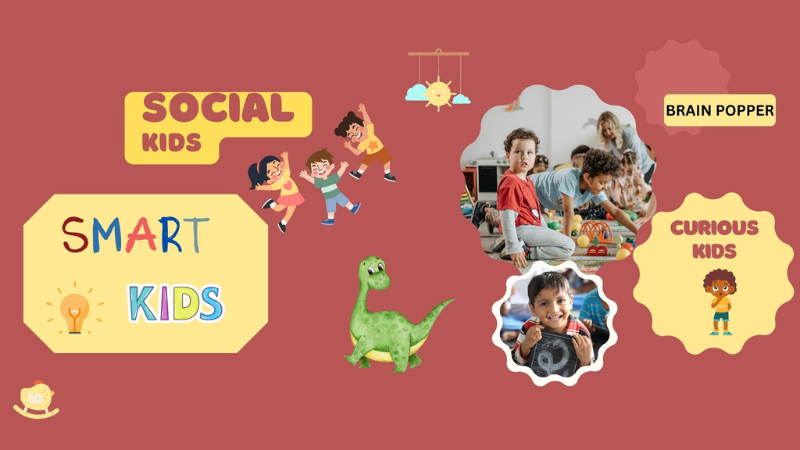Stay Curious
Sep 7, 2024
Why Curious Kids Can Become Creative and Motivated
Curiosity is a powerful force that drives human progress and development. In children, curiosity is particularly potent as it lays the foundation for creativity and motivation. When kids are curious, they are naturally inclined to explore, question, and learn about the world around them. This thirst for knowledge not only enhances their understanding but also fosters creativity and a strong sense of motivation. In this essay, we will explore how curiosity nurtures creativity and motivation in children, and why fostering curiosity in young minds is crucial for their growth.
Curiosity Fuels Creativity
Creativity is the ability to think outside the box, to come up with novel ideas, and to solve problems in innovative ways. At its core, creativity is fueled by curiosity—the desire to learn, explore, and understand the unknown. Curious children constantly seek new experiences, ask questions, and imagine different possibilities. This open-minded approach to the world allows them to make unique connections between seemingly unrelated concepts, which is a hallmark of creative thinking.
For example, when a child is curious about how a rainbow is formed, they may not only learn the science behind it but also imagine what it would be like to walk on a rainbow, or they might create a story about a world where rainbows are a mode of transportation. Such imaginative thinking is the seedbed of creativity. By encouraging children to stay curious and explore their interests, we provide them with the opportunity to develop creative problem-solving skills that can serve them throughout their lives.
Curiosity Sparks Motivation
Curiosity also plays a significant role in fostering intrinsic motivation—the inner drive to engage in activities for their own sake, rather than for external rewards. When children are curious about something, they are naturally motivated to learn more about it. This intrinsic motivation is powerful because it comes from within and is sustained by the child's own interests and passions. Unlike extrinsic motivation, which relies on rewards or punishments, intrinsic motivation leads to a deeper and more meaningful engagement with learning.
A curious child who is fascinated by dinosaurs, for instance, may spend hours reading books, watching documentaries, and even creating their own dinosaur drawings or models. This self-directed learning is driven by the child's own desire to understand and explore the topic, rather than by a teacher's assignment or a parent's encouragement. This type of motivation is highly effective because it leads to greater persistence, a willingness to tackle challenges, and a sense of accomplishment when goals are achieved.
The Role of Parents and Educators in Fostering Curiosity
To harness the benefits of curiosity, it is essential for parents and educators to create environments that encourage exploration, questioning, and experimentation. Children should be given the freedom to ask "why," "how," and "what if" without fear of judgment or dismissal. Open-ended questions, hands-on activities, and opportunities for self-directed learning can all contribute to a culture of curiosity.
Moreover, it is important to recognize that mistakes and failures are natural parts of the learning process. When children are curious, they are more likely to take risks and try new things. In doing so, they may fail at times, but these experiences are invaluable for building resilience and problem-solving skills. By framing failures as learning opportunities, parents and educators can help children maintain their curiosity and motivation even in the face of setbacks.
Long-Term Benefits of a Curious Mindset
Curious children who grow up in environments that nurture their curiosity are more likely to become lifelong learners. They develop critical thinking skills, creativity, and a passion for exploration that extends beyond the classroom and into adulthood. These traits are highly valuable in an ever-changing world where adaptability, innovation, and continuous learning are key to success. Furthermore, a curious mindset helps individuals to remain open to new ideas, diverse perspectives, and different cultures, which fosters empathy and collaboration—important qualities in both personal and professional contexts.
Conclusion
Curiosity is a natural and powerful driver of creativity and motivation in children. When children are encouraged to explore their interests, ask questions, and embrace uncertainty, they develop the creative and critical thinking skills necessary for solving problems and achieving their goals. By fostering curiosity, parents and educators can help children become motivated, lifelong learners who are equipped to navigate the complexities of the world with imagination and resilience. Therefore, it is essential to cultivate and celebrate curiosity in our young minds, for it is the key to unlocking their full potential.
